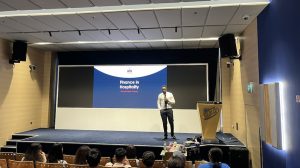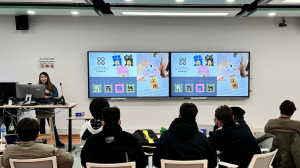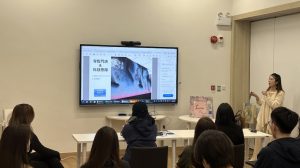Research explored the influence of tourism growth on Macao, identifying 4 patterns of social change. It noted positive influence on the jobs sector, but highlighted challenges such as family issues, peer pressure, and the closure of traditional businesses. The researchers noted there was a role for government intervention, and urged a holistic approach to tourism development
A study involving 2 scholars from IFTM has examined the social impact on Macao of tourism development. The research identified 4 patterns of social change triggered by expansion of the tourism sector: a shift towards early marriage and early parenthood; deterioration in family relationships; heightened peer pressure and jealousy; and the gradual loss of local and traditional businesses.
The research team highlighted that these findings could provide valuable insights for the Macao Government in navigating the positive and negative aspects of the economic transformation prompted by tourism development.
The study was by IFTM’s Dr. Clara Lei Weng Si, Director of the School of Hospitality Management, and Lecturer in the School of Tourism Management Dr. Vicky Chen Zhaoyu. They collaborated with Dr. Wantanee Suntikul, an associate professor at the University of Cincinnati, Ohio, in the United States.
The findings were detailed in the academic paper “Tourism development induced social change”. It was published last year in the Annals of Tourism Research Empirical Insights. (Click here for access to full paper.)
The research analysed articles from 3 local news outlets and involved in-depth interviews with 37 residents drawn from a variety of socioeconomic backgrounds.
The researchers selected Macao for the case study due to the swift growth of its tourism market following the liberalisation of the city’s gaming industry from the year 2002 and the consequential social changes. They highlighted that Macao welcomed 39.4 million tourists in 2019, with non-gaming tourist spending nearly doubling in the period from 2010 to 2019, before the onset of the COVID-19 pandemic.
Interviewees reported “plentiful jobs and a sense of stability” as a result of the city’s tourism development, wrote the researchers. The research team noted a trend of early marriage and early parenthood among interviewees, viewed “as common goals of the younger generation who have graduated from university and hold stable jobs”.
The study highlighted the increase in shift work due to expansion of tourism, and shift work’s associated effects on lifestyle, particularly the ‘deterioration of family relationships’. The researchers noted that shift work was prevalent in the tourism and hospitality industry, where operations run round the clock.
Tourism’s advance had led to an increase in average income in Macao, and the study observed a rise in disposable income, resulting in a surge in consumption related to leisure activities, including outbound travel, entertainment, dining, and shopping.
However, the findings indicated that along with the rise in leisure consumption, ‘peer pressure’ had emerged, particularly related to the consumption of luxury products and services among the younger generations. The researchers noted that peer pressure existed in the workplace and in social life, with online social media communities playing a significant role.
The closure of traditional local businesses was identified as another social change related to tourism development. The researchers pointed out that the younger generation showed little interest in running family-owned or traditional businesses, which were “typically time-consuming to operate, with slim profit margins.” This had led to the closure or sale of many such establishments.
The research team said their findings should not be interpreted as suggesting gambling tourism development was solely responsible for the identified social trends. However, they highlighted the close link between the development of the gambling sector, tourism growth, and increasing economic prosperity in Macao.
Based on their findings, the researchers emphasised a “real imperative” for government intervention to counteract the negative social effects of tourism development. Drawing on examples from other destinations, they stressed the need to apply tax revenues generated from the gambling industry to counter the “less tangible or quantifiable consequences” on social well-being and cultural heritage, of Macao’s “tourism monoculture” linked to gaming.
Advocating a “holistic strategy” to tourism development, the researchers called for “community involvement and impact mitigation” from the outset when planning management of tourism. While acknowledging missed opportunities for proactive measures in Macao, they emphasised the importance of “redoubled efforts” to integrate planning into a comprehensive strategy for the well-being of Macao’s citizens and the city’s heritage. Suggestions included subsidies for local businesses, preservation of traditions and craft knowledge, and social programmes addressing familial breakdowns linked to shift work patterns.









